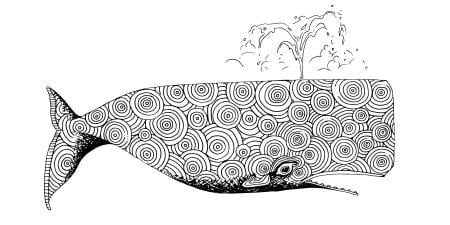Case
Robert has spent the summer in an intensive weight reduction program at Columbus Children’s Hospital on the south side of Chicago. The highly selective program accepts only two or three adolescents each summer. Participants must demonstrate motivation and must have medical problems exacerbated by obesity. Robert has cardiomegaly, hypertension and prediabetes. At 14, Robert is 5 feet 7 inches tall and weighs 285 pounds.
Kelly, who is doing her third-year pediatric clerkship at Columbus, was asked to follow Robert’s progress over several weeks. Kelly felt immediately sympathetic to Robert’s situation. She had been overweight as a child, and nothing had been worse or more scarring than being the fat kid in the class. She thought she would never fully recover from the years of relentless ridicule. As she got to know Robert over the ensuing weeks, Kelly was surprised to discover that being overweight didn’t bother Robert in the way it had bothered her. Clearly, obesity was viewed differently in his community than in the world where Kelly was raised. He had lots of friends, including a girlfriend. Other kids rarely bothered him about his weight. His parents were OK with his body size. In the end, it was his doctors’ concern about his weight and their urgings that secured Robert’s participation in this program.
After several weeks of living as a patient at the hospital, with tightly monitored caloric intake and daily exercise, Robert lost 30 pounds. He was pleased that he had accomplished this goal. Using a day pass, he had bought new tennis shoes and was getting ready to go home. All he had left was his family meeting. Kelly was invited to attend the meeting, which included Robert, his mother and father, brother and sister (all of whom were obese), a social worker, nutritionist and his doctor, Michael Smith.
It was clear from the meeting that, while his family was pleased that Robert had lost weight, it was not a priority for them, nor had they fully comprehended the seriousness of his related medical conditions. At the end of the meeting, Kelly was trying to understand what the hospital had accomplished for and with Robert. She asked Dr. Smith if he thought they had helped him and, if not, had it been worth all the time and resources? Could you really accomplish anything without the support of parents, family and the culture at large?
Commentary
We must begin in pediatrics with a basic question: Who is the patient we are trying to serve? Though the family needs to be involved, Robert is the patient in this case, and he is the primary focus of our concern. He has probably been admitted to the inpatient service of this hospital on many occasions. Because he is a minor, this was done with the informed consent and authorization of his parents. Because Robert is an adolescent, his medical team discussed the admission with him and provided him with details about the medical work to be done so that he might at least assent to the admission and work.
But Robert is an adolescent and we now know more about the developing adolescent brain than we did when pronouncements about adolescent consent and assent were first promulgated [1]. We recognize that it is almost impossible to coerce adolescents to participate in a medical procedure or treatment if they are not inclined to do so. We also need to recognize that it is almost as difficult to reason with most adolescents as it is to reason with much younger children. While we once thought that brain development, begun in utero, was complete in the preadolescent or late adolescent years, we now know from a variety of studies that this is not the case [2]. Specifically we have learned that the so-called “executive functions” are not fully formed until the early to mid-twenties [3]. This should not be surprising since there have always been in the literature, both scientific and otherwise, examples of the inability of adolescents to make responsible decisions or even decisions in their own best interest.
Risk-taking behavior, inability to see the short- and long-term consequences of actions, difficulties with abstractions and an inadequate concept of self-control, have all been noted as characteristics of adolescents. While recent scientific findings have provided information about the underlying neurobiological mechanisms for adolescent behavior, we are left with questions about our obligation to make Robert act in his own best interest.
Ethical Problems in Obesity Counseling and Care
Kelly, the third-year pediatric clerk who has been working with Robert for the past several weeks in the hospital, appears confused and perhaps a little frustrated about his participation in this intensive weight reduction program. She is surprised that Robert, his family and his friends all share an accepting attitude toward obesity—an attitude very different from her own and that of her peers. But this marked difference in attitudes does not, in and of itself, constitute an ethical issue. What other features of the case, then, might raise it to the level of a substantive ethical problem?
Kelly asks her attending physician, Dr. Smith, if Robert’s hospitalization had been “worth all the time and resources.” It is not clear whether she suspects that Robert’s participation, or the intensive weight reduction program as a whole, is a poor use of health care resources and therefore a kind of ethical mistake. It might, in fact, turn out that Robert, or even the majority of program patients, realize no lasting benefit from their participation, due to deficiencies in the program’s goals, in the patient selection process, or in the treatments themselves. There is, however, not nearly enough evidence provided to establish this conclusion. Robert did, after all, complete the program and achieve his goal of losing 30 pounds. Kelly clearly fears that Robert will not continue to control his weight, but she might also hope that the positive experience of a significant weight loss and the new knowledge Robert has gained about diet and exercise will have a lasting effect. Assuming that the weight reduction program includes follow-up of program patients and reporting of results, even a subsequent finding that the program did not result in lasting benefits may point the way toward more effective weight loss initiatives for adolescents.
Another way to interpret Kelly’s concern is not that too much is being done to address Robert’s obesity, but rather too little. She clearly believes that Robert and his family should be much more concerned about his weight than they are. She might be inclined to argue that Robert’s parents’ failure to take his health problems more seriously and to take more aggressive steps to control his weight is ethically unacceptable behavior, in fact a kind of child neglect. If this conclusion were correct, it would represent not only an ethical but a legal transgression, and it would create a professional duty to report this suspicion of child neglect, followed by mandatory investigation by state child protective service officers and, if appropriate, required interventions to address the problem.
There are, however, several reasons to believe that such a conclusion would be premature, at best. First of all, Robert’s parents did agree to his participation in the intensive, inpatient weight reduction program, and they did support the program, at least as evidenced by their attendance at the concluding family meeting and their reported pleasure at his loss of weight. Second, Robert’s parents’ relative lack of concern about his weight does not appear to be aberrant, but rather a commonly held attitude, at least in their cultural community. Thus, if Robert’s parents’ behavior constitutes child neglect, so would the behavior of many, if not most, of the other parents in that community. Such a standard of neglect seems too stringent, and, unless the community in question is very small, it would be prohibitively expensive to enforce.
The most important ethical issue in this case may ultimately be one of recognizing and responding to cultural diversity. Kelly recognizes that Robert and his family and friends have cultural attitudes and priorities about body weight that are very different from her own (and from those of most health professionals). Their attitudes conflict with her beliefs about how to pursue Robert’s best interests. In light of this conflict, she might be tempted either to “write off” Robert as a hopeless case or to enlist the power of the state in order to impose healthier behaviors on him. We have argued that neither of these courses of action would be justified, given the situation described. Instead, we believe that Kelly, Dr. Smith and the other health professionals caring for Robert should continue to counsel Robert and his parents about the probable consequences of his obesity on his health, educate them about proper diet, exercise and health care, and encourage their continuing efforts to control his weight. They should also recognize that Robert and his parents are ultimately responsible for the choices that will guide his life, and they are entitled, within reasonable limits, to make those choices based on their own beliefs and attitudes about human health, beauty, enjoyment and activity.
Both legally and ethically then, all we can do is make the appropriate recommendations for this young man’s health and well-being to him and to his parents, noting our discussions and their responses in his medical record.
References
-
American Academy of Pediatrics Task Force on Pediatric Research, Informed Consent, and Medical Ethics. Consent. Pediatrics. 1976;57:414−416.
-
National Institute of Mental Health. Teenage brain: a work in progress: a brief overview of research into brain development during adolescence. Bethesda, Md: NIH; 2006. NIH Publication No. 01-4929. Available at: http://www.nimh.nih.gov/publicat/teenbrain.cfm. Accessed September 26, 2006.
- Sowell ER, Thompson PM, Holmes CJ, Jernigan TL, Toga AW. In vivo evidence for post-adolescent brain maturation in frontal and striatal regions. Nat Neurosci. 1999;2(10):859-861.



